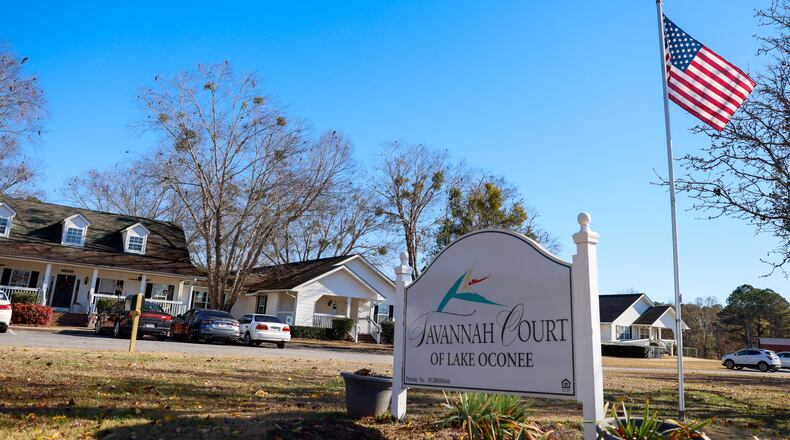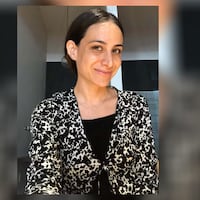The fate of a troubled Georgia senior care home remains unresolved this week after a day-long court hearing in which state regulators pressed forward with a plan to revoke the facility’s license to operate.
An administrative law judge listened to testimony on Wednesday in which state attorneys representing the Department of Community Health (DCH) outlined a litany of problems at Savannah Court of Lake Oconee, a 72-bed facility in Greensboro. The day ended with the judge concluding that the hearing would have to resume later this month, but no date had been scheduled. This leaves dozens of residents and families in limbo.
The home was the subject of a recent investigation by The Atlanta Journal-Constitution that found more than 70 state violations since 2021, including the death of two residents and a sexual assault that occurred in October after the state had issued its revocation notice. The report highlighted problems with the state’s oversight of assisted living and personal care facilities and its lackluster enforcement of state regulations.
The state’s revocation notice was issued in August after Savannah Court allegedly broke the terms of a March 2023 settlement agreement — the second the state had entered into with the facility, according to the state’s attorneys.
“This is a mess,” Administrative Law Judge Charles Beaudrot said before the hearing began inside a Greene County courtroom.
The judge said the facility’s track record “the little bit I glean, is not good.”
“There’s been a history of multiple sanctions and busted settlement agreements, it’s a little bit fool me once, fool me twice,” he said.
Still, in weeks leading up to the hearing the state was talking to the facility about entering into a third settlement agreement. The two sides had postponed a Nov. 1 revocation hearing for these discussions and started the Jan. 3 hearing indicating they were still trying to find some sort of resolution that avoided closure.
Attorneys for Savannah Court suggested a possible independent monitor for a year at the expense of Savannah Court.
“I think by putting our heads together in terms of a consent judgment — an independent monitor, and other measures in place so that the safety of residents is preserved and the licensure remains in place — that potentially can be our best possible outcome here today,” Savannah Court co-counsel Kara Silverman, an attorney with Arnall Golden Gregory LLP, said.
The court broke for a two-hour lunch where both parties were supposed to come up with a possible resolution for the judge to sign by the end of the day but within minutes of the break, such a possibility fell apart.
“The state’s position is that we’ve made repeated attempts to work with Savannah Court of Lake Oconee, we feel that it’s best at this juncture to move forward with the hearing and allow the court to make the ultimate decision,” Jason Reeves an attorney for DCH said, explaining that he took Savannah Court’s suggestion — a year of independent monitoring — to his higher-ups and was told no.
He would not comment as to whether the AJC’s reporting that published Wednesday morning played a role in the state’s decision not to reach some sort of agreement with Savannah Court again.
Without such an agreement, the hearing moved forward as planned.
During opening statements, Reeves acknowledged that the closure of Savannah Court would create a void in services in a community with few options, but that this is not a reason to keep a facility that has been flagged so many times for repeated violations open.
“We believe that the community’s only option can’t be a poor option or a bad option,” he said.
Savannah Court’s attorney Chesley McLeod stressed what a closure would do to the health and stress of residents and their families and how there would also be many people who would lose their jobs as a result of the closure.
“The impact of a closure I don’t think it’s any exaggeration to say it would be catastrophic,” he said, adding that the facility’s most recent inspection on Nov. 3 had no violations.
“It came back with no tags for deficiencies so a completely clean bill of health, so it is our position that this indicates compliance that is sufficient to deny the intent to revoke,” he said.
He did not mention that the day before, on Nov. 2, the state released an inspection report detailing a sexual assault of an 88-year-old resident by another resident and findings that the facility did not adequately monitor the 93-year-old alleged perpetrator who had dementia and “known hypersexual behavior.”
During the hearing, Georgina Bowen, a compliance specialist with the state, and Anthony Moss, the Deputy Director for Georgia Department of Community Health were cross-examined.
Uri Rubin, the CEO of Senior Living Management, and Tori Gober, the Corporate Director Of Operations, were both in attendance as witnesses for Savannah Court. They were unable to testify as time ran out.
“We’re waiting to see what the outcome is but we’re hoping it’s going to be a positive outcome for all,” Rubin said at the start of the lunch break when a possible settlement was still being discussed. He would not comment any further on the allegations made against the facility, which is one of four the company operates in the state.
Credit: Allie Gross
Credit: Allie Gross
At the end of the hearing, Judge Beaudrot mentioned the possibility of the hearing continuing on Zoom during the week of January 22 but an official date has not been set yet. He anticipated that the hearing, when it resumed, would take two days. He then would decide on whether or not the facility should have its license revoked.
Typically judges review the record and issue a written decision within 30 days of a hearing, according to Dominic Capraro General Counsel Office of State Administrative Hearings.
Up until a decision is made the state and the facility could still reach some sort of resolution, according to Beaudrot.
The AJC investigation into Savannah Court raised questions about persistent shortcomings, and a seemingly unhurried approach, in the state’s oversight of assisted living and large personal care facilities. Savannah Court’s high number of violations and the continued use of settlement agreements — which can couch penalties by breaking them up — raised questions about the state’s commitment, as well as its ability, to follow through with its promise to hold its 1,686 assisted living and personal care facilities accountable.
It’s a problem considering Georgia touts a robust enforcement system. In 2020 following an Atlanta Journal-Constitution investigative series documenting similar inadequacies and accountability issues, the state passed a reform package to increase its fines and requirements of senior care facilities.
About the Author
Keep Reading
The Latest
Featured




